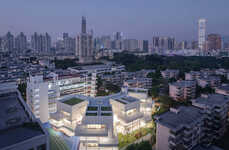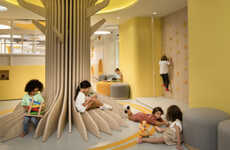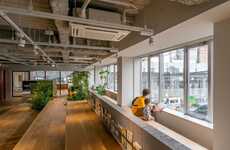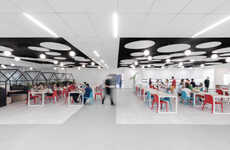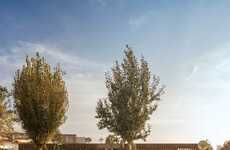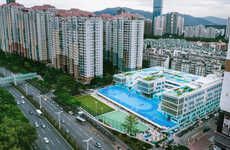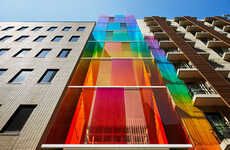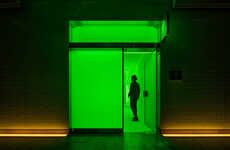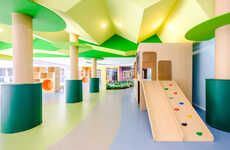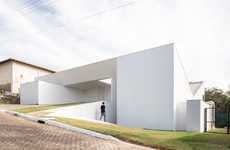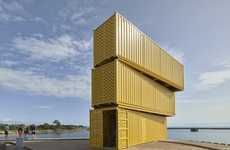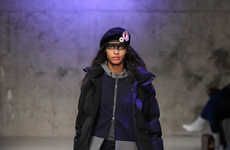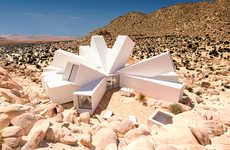
This Japanese Kindergarten Focuses on Vivid and Playful Designs
Mishal Omar — October 6, 2017 — Life-Stages
References: emmanuellemoureaux & fubiz.net
Though most kindergartens around the world put an emphasis on color and playful elements, the one designed by the architect Emmanuelle Moureaux in Fukouoka, Japan, takes those design elements to the next level.
The architect's goal was to create a building that had a visible purpose, but that also suited the contemporary aesthetic that he prefers. On its exterior, the elevated white structure features dynamic crisscross panels that feature various pops of color, with similar colors being grouped together to give a rainbow-like aesthetic.
The building's interior has a similar focus on color, while floor to ceiling windows and light wooden furniture and flooring ensures the space looks bright, open and expansive – making it an excellent environment for young children to both learn and play in.
The architect's goal was to create a building that had a visible purpose, but that also suited the contemporary aesthetic that he prefers. On its exterior, the elevated white structure features dynamic crisscross panels that feature various pops of color, with similar colors being grouped together to give a rainbow-like aesthetic.
The building's interior has a similar focus on color, while floor to ceiling windows and light wooden furniture and flooring ensures the space looks bright, open and expansive – making it an excellent environment for young children to both learn and play in.
Trend Themes
1. Color-themed Kindergartens - Using vivid and playful color themes to create dynamic and engaging learning environments.
2. Contemporary Aesthetics for Educational Buildings - Integrating modern design elements to create visually stunning and functional educational spaces.
3. Open and Expansive Learning Environments - Focusing on bright, welcoming spaces with plenty of natural light and open floor plans that foster creativity and exploration.
Industry Implications
1. Education - Disruptive innovation opportunities include designing educational spaces that prioritize both functionality and aesthetics to foster creativity and positive learning experiences.
2. Architecture - Creating visually stunning and unique buildings that inspire and engage their inhabitants, such as color-themed kindergartens.
3. Interior Design - Using color and furniture to create dynamic and engaging spaces that promote creativity and exploration, such as in kindergartens.
3.8
Score
Popularity
Activity
Freshness


